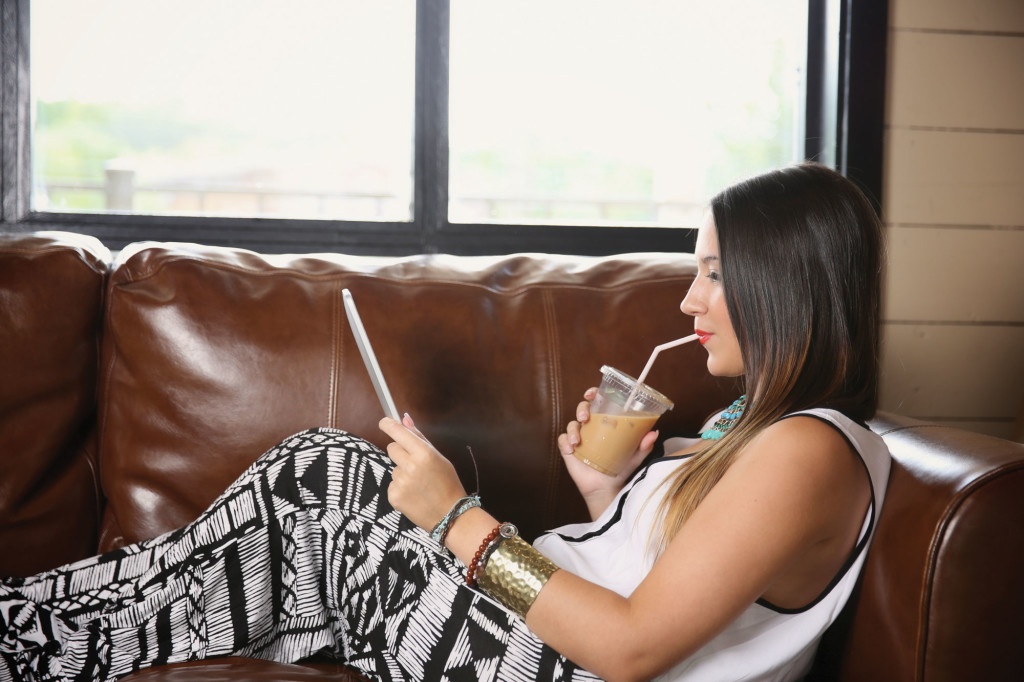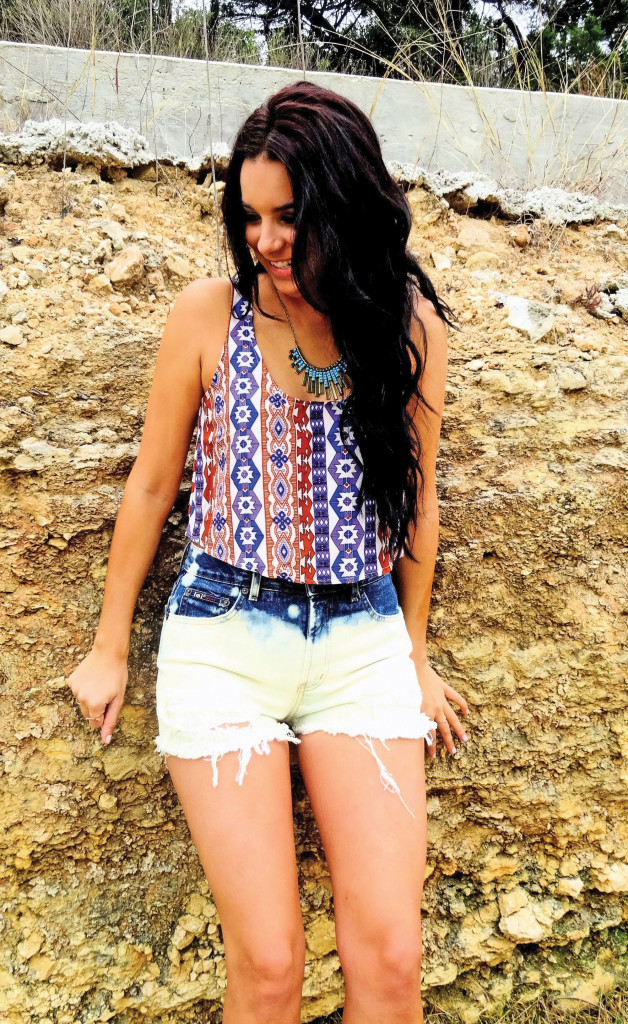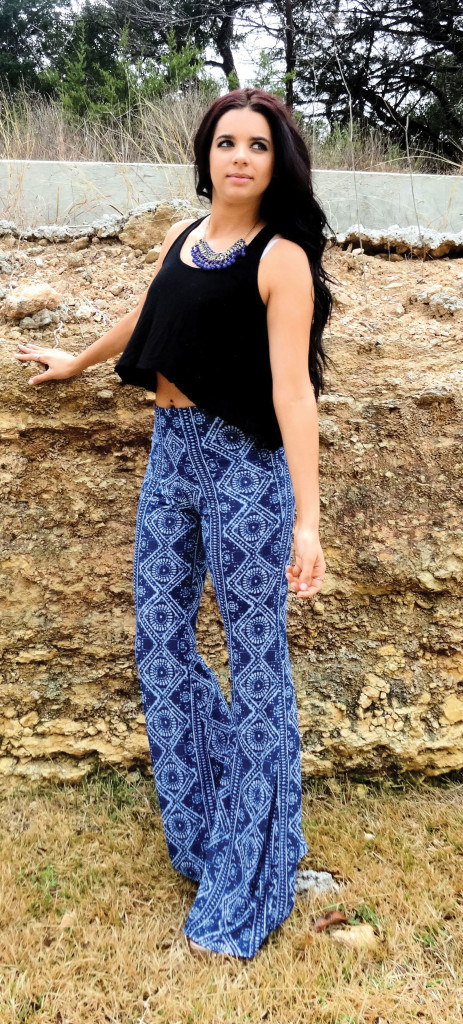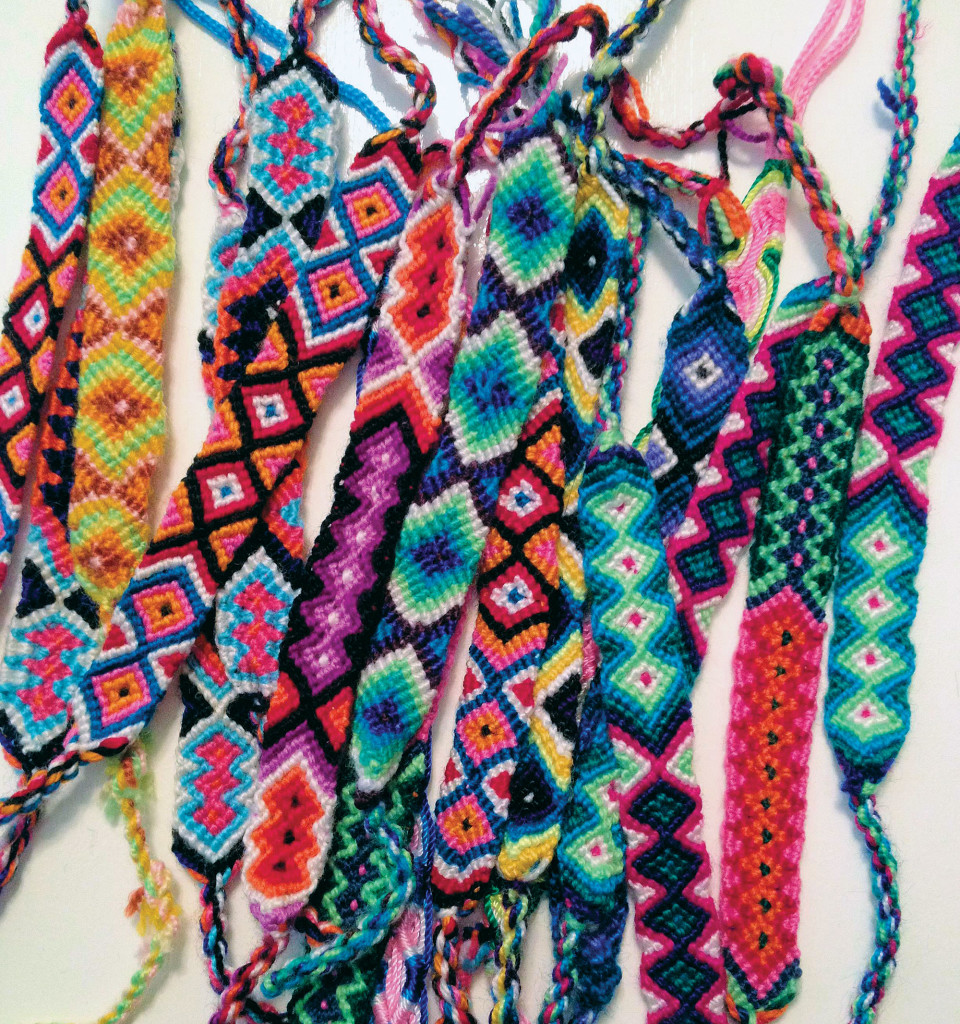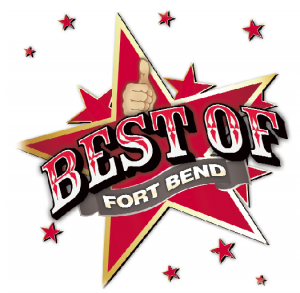Fashion e-Tailing with Integrity
Local Fashionista Launches An Online Boutique Based On Socially Conscious Principles
By Judy Latta
Lauren Anzaldua always knew she would someday work in the fashion industry, and when she took a job at a trendy boutique while she was still in high school, she realized retail was her calling. Smart and stylish, with a keen business-sense and an entrepreneurial spirit, Lauren decided early in life that she would someday open her own fashion boutique.
However, when she took a course on “social enterprises” as one of the first women in the new Entrepreneurship Program at the University of Texas at San Antonio, Lauren’s career vision really came into focus. This course introduced an extraordinary set of business principles based on integrating philanthropy directly into a company’s business plan and implementing fair trade practices. Fair trade is a social movement focused on strengthening developing countries by paying their businesses a fair wage for goods and promoting higher social and environmental standards. Lauren was inspired by this course, and she began thinking about ways that she could merge her two passions: fashion and philanthropic capitalism.
In her last semester of college, after being turned down by Nordstrom’s department store for an internship position, Lauren, disappointed but not discouraged, decided that there was no time like the present to chase her dream. After all, when she was a child she never played house or dolls; she always set up her room like an office and played “boss.” She knew she ultimately wanted to work for herself, and even though she was still young, she was confident that she was up to the challenge of undertaking an entrepreneurial endeavor and succeeding.
The Emergence of Indigenous
Thus, in April 2013, Lauren decided to take a leap of faith and open her own online fashion boutique using a socially conscious business model. By October of that same year her dream was realized when she launched her company, Indigenous. Her concept was to create a place where fashionistas could buy quality, high-end products that also benefit society. The company’s mantra is “fashion to feel good about.” Lauren is proud to say that Indigenous offers products that are unique, handmade and ethically produced.
Her company is designed to maximize what is known as the triple bottom line, a business model with not only a profit maximization goal, but also goals of bettering society and the environment. “We hope to become a social enterprise that will lead by example,” she says.
Lauren describes her merchandise as festival chic. “Indigenous is for the feminine, adventurous and free-spirited woman. We represent those who embrace life to the fullest while being grounded and humble. Our boutique targets those who are comfortable with themselves and like to look good and feel good while dressing in their own sense of style,” she explains. Indigenous also targets those women who care about how their purchasing decisions will impact society.
The company carries such products as Chila bags that are hand-knit by women of the Wayuu Tribe in Colombia. These bags provide the crafters with a fair-wage source of income, and each bag is one-of-a-kind and will never be reproduced. Other examples of products from Indigenous include original artwork iPhone cases made from 100 percent recycled plastic by a designer in her home in Istanbul; garments from the independent, ethically committed U.S. brand Mamie Ruth; and sneakers handmade in Peru that are 100 percent vegan and eco-friendly. Proceeds from the sale of these sneakers are donated to the Amazon Conservation Association, an organization committed to protecting biodiversity in Peru and Bolivia while supporting the livelihoods of local communities. Other brands carried by Indigenous include Goddis, Henry & Belle, Hiptipico, Show Me Your Mumu, Chaser and many more.
What’s in a Name?
Lauren says she chose the name Indigenous because it means “produced, growing, living, originating or occurring naturally in a particular place,” or native to that place. Indigenous applies to people from all walks of life and relates to different cultures from around the world. She says she “aims to sell products that resemble pieces one would find while shopping through exotic market places, exclusive yet high quality. Indigenous celebrates the differences among people and hopes to serve as a resource to connect civilizations from even the greatest distances, while providing a new outlet for both buyers and sellers in the marketplace.”
Indigenous currently sells merchandise from the U.S, India, Uganda, Colombia, Brazil, Cambodia, Ghana, Peru, Guatemala, Istanbul and China. As the business grows, Lauren plans to add vendors from additional countries across the world. She also plans in the next few years to expand into additional product lines, such as home décor and art, and to open her first brick-and -mortar location.
Down the road, she would like to establish a philanthropic foundation that is supported by proceeds of Indigenous sales. “I would love to start a nonprofit that can provide funding to aspiring designers that have some sort of sustainable aspect for their products. For example, a shoe designer that uses recycled materials or a designer that uses a women’s cooperative in a third-world country for production and offers them a fair wage.”
Lauren also aspires to design a clothing line of her own. “For the clothing line, my dream would be to partner with Lighthouse for the Blind, a sewing manufacturing plant that employs blind people, and have them manufacture the clothing,” she explains. “These people that society normally classifies as disabled or unable to work are provided with a legitimate job with above-fair wages. They currently make products for many companies including Boeing and the U.S military.”
Lauren is very excited about what lies ahead for Indigenous and those who will be positively impacted by the company. She sometimes reflects on that fateful day when she found out she had not been selected for a Nordstrom’s internship and thinks about how, if things had gone differently, there might not be an Indigenous today.
For more information, check out the website, shopindigenous.com. The line has products that range in price from $18-$200, so there is something for everyone. Every order, regardless of size, includes a free hand-woven friendship bracelet as a special gift from Lauren.


